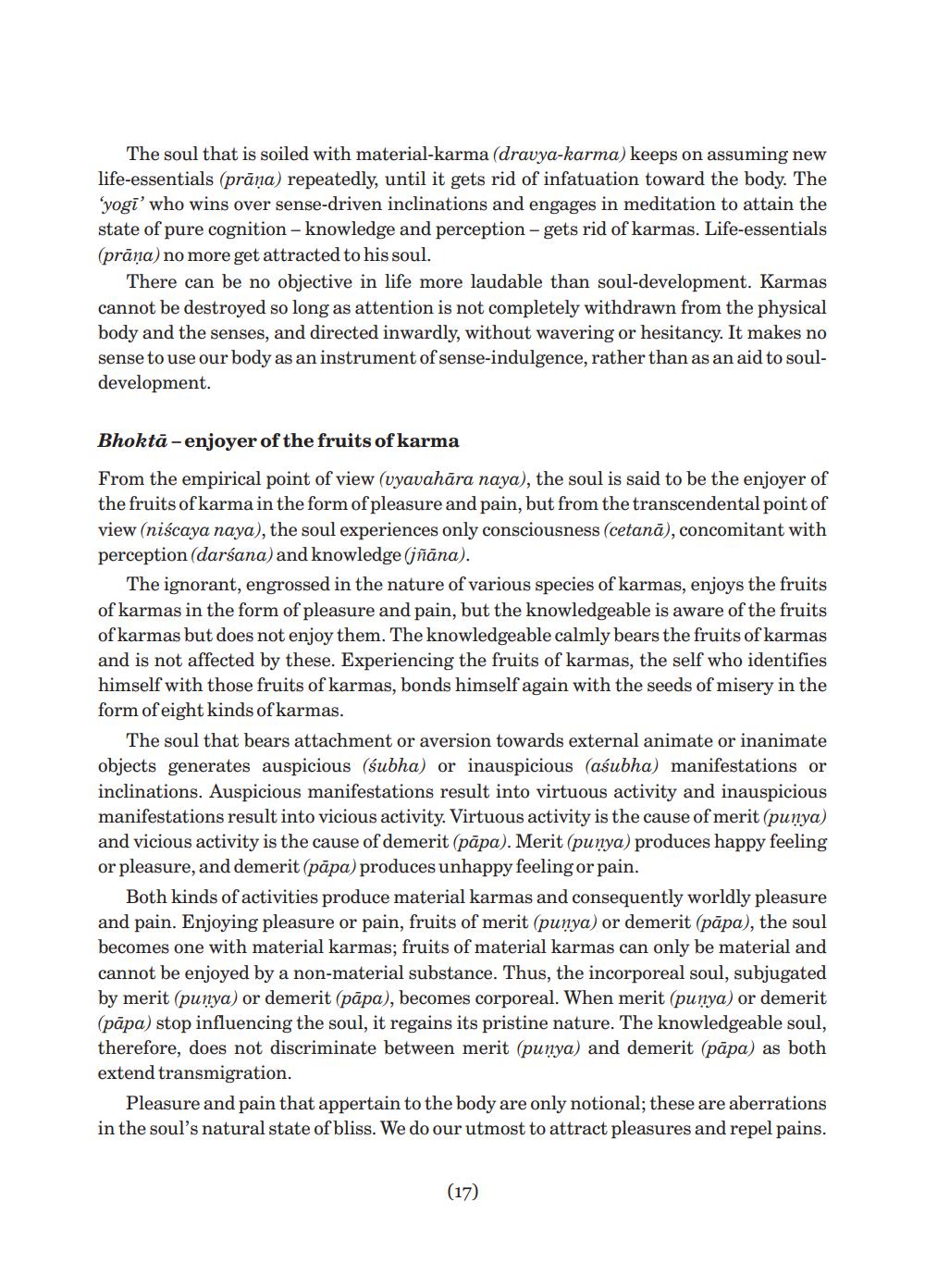________________
The soul that is soiled with material-karma (dravya-karma) keeps on assuming new life-essentials (prāna) repeatedly, until it gets rid of infatuation toward the body. The yogi' who wins over sense-driven inclinations and engages in meditation to attain the state of pure cognition - knowledge and perception - gets rid of karmas. Life-essentials (prāņa) no more get attracted to his soul.
There can be no objective in life more laudable than soul-development. Karmas cannot be destroyed so long as attention is not completely withdrawn from the physical body and the senses, and directed inwardly, without wavering or hesitancy. It makes no sense to use our body as an instrument of sense-indulgence, rather than as an aid to souldevelopment.
Bhoktā - enjoyer of the fruits of karma
From the empirical point of view (vyavahāra naya), the soul is said to be the enjoyer of the fruits of karma in the form of pleasure and pain, but from the transcendental point of view (niscaya naya), the soul experiences only consciousness (cetanā), concomitant with perception (darśana) and knowledge (jñāna).
The ignorant, engrossed in the nature of various species of karmas, enjoys the fruits of karmas in the form of pleasure and pain, but the knowledgeable is aware of the fruits of karmas but does not enjoy them. The knowledgeable calmly bears the fruits of karmas and is not affected by these. Experiencing the fruits of karmas, the self who identifies himself with those fruits of karmas, bonds himself again with the seeds of misery in the form of eight kinds of karmas.
The soul that bears attachment or aversion towards external animate or inanimate objects generates auspicious (śubha) or inauspicious (aśubha) manifestations or inclinations. Auspicious manifestations result into virtuous activity and inauspicious manifestations result into vicious activity. Virtuous activity is the cause of merit (punya) and vicious activity is the cause of demerit (pāpa). Merit (punya) produces happy feeling or pleasure, and demerit (pāpa) produces unhappy feeling or pain.
Both kinds of activities produce material karmas and consequently worldly pleasure and pain. Enjoying pleasure or pain, fruits of merit (punya) or demerit (pāpa), the soul becomes one with material karmas; fruits of material karmas can only be material and cannot be enjoyed by a non-material substance. Thus, the incorporeal soul, subjugated by merit (punya) or demerit (pāpa), becomes corporeal. When merit (punya) or demerit (pāpa) stop influencing the soul, it regains its pristine nature. The knowledgeable soul, therefore, does not discriminate between merit (punya) and demerit (pāpa) as both extend transmigration.
Pleasure and pain that appertain to the body are only notional; these are aberrations in the soul's natural state of bliss. We do our utmost to attract pleasures and repel pains.
(17)




